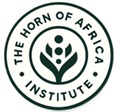The Conflict and Stability Initiative (CSI) at the Horn of Africa Institute is a research and policy-driven organization committed to addressing the complex and interconnected challenges facing the Horn of Africa. The region—comprising Ethiopia, Somalia, Eritrea, Djibouti, and Sudan—stands at a geopolitical crossroads, rich in resources yet marred by persistent conflicts, terrorism, and external rivalries.
The CSI team integrates qualitative and quantitative methodologies to analyze conflict dynamics, map stakeholders, assess geopolitical impacts, examine economic and social consequences, evaluate peacebuilding mechanisms, explore technology in modern conflicts, and address environmental stressors, delivering evidence-based research and actionable insights to support policymakers, peacebuilders, and stakeholders in fostering peace, security, and sustainable development.
Research Focus Areas
1. Dynamics of Internal and Cross-Border Conflicts
We investigate the underlying causes and spillover effects of conflicts in the Horn of Africa, often tied to ethnic divisions, governance failures, and resource competition. Our work includes:
- Identifying historical and socio-economic drivers of conflict.
- Assessing the role of organizations like IGAD in conflict prevention and resolution.
- Developing frameworks for mitigating cross-border tensions and their impact.
2. Evolution and Impact of Terrorism
With groups like Al-Shabaab operating in the region, terrorism remains a critical challenge. Our research focuses on:
- Understanding recruitment drivers, including poverty and ideological influence.
- Mapping networks and connections with global extremist organizations.
- Evaluating the role of ungoverned spaces in fostering extremism.
3. Counterterrorism Strategies and Effectiveness
We analyze the implementation and outcomes of counterterrorism efforts, balancing security imperatives with human rights considerations. Key areas include:
- Effectiveness of military interventions, such as AMISOM.
- The socio-political consequences of counterterrorism policies.
- Enhancing regional intelligence sharing and security capacity-building.
4. Geopolitical Rivalries and Foreign Influence
The region’s strategic importance has attracted significant attention from global powers. Our research examines:
- The role of China’s Belt and Road Initiative and Turkey’s investments in Somalia.
- The implications of foreign military bases and economic engagement.
- Strategies for managing external influence to benefit regional stability.
5. Resource Competition and Climate Change
Resource disputes, particularly over water and arable land, are key triggers of conflict. We prioritize research on:
- The Nile Basin disputes and cooperative frameworks for resource-sharing.
- The impact of climate change on resource scarcity and conflict.
6. Maritime Security and Piracy
Proximity to major sea routes makes the Horn of Africa a critical area for maritime security. We focus on:
- Understanding the socio-economic drivers of piracy in Somalia.
- Assessing international anti-piracy efforts.
- Evaluating piracy’s economic impact on trade and local communities.
7. Regional Organizations in Conflict Management
We evaluate the role of regional organizations like IGAD in peacebuilding and cooperation. Our research includes:
- Effectiveness of IGAD-led conflict resolution initiatives.
- Mechanisms for enhancing regional cooperation.
8. Influence of Non-State Actors
From armed groups to NGOs, non-state actors shape security and governance. We explore:
- The role of tribal militias in local conflicts.
- The influence of NGOs in humanitarian and peacebuilding efforts.
- The impact of illicit trade networks, including arms and human trafficking.
9. Media and Propaganda in Conflict and Counterterrorism
Our work investigates the critical role of media in shaping conflict and counterterrorism narratives, including:
- Extremist groups’ use of digital platforms for propaganda.
- The impact of misinformation on public opinion and conflict dynamics.
- Developing counter-narrative strategies to promote peace and security.
10. Humanitarian Impacts of Conflict and Terrorism
The region’s conflicts have profound humanitarian consequences. We focus on:
- Displacement and the socio-economic impacts on host communities.
- The effectiveness of humanitarian aid in conflict zones.
- Long-term solutions for displaced populations, including integration and resettlement.
Join us in shaping the Horn of Africa.
The Horn of Africa is at the intersection of local struggles and global geopolitics. By addressing the root causes of conflict and promoting informed policymaking, we empower regional and international stakeholders to foster peace and stability. Our work offers solutions that balance immediate security needs with long-term development goals
